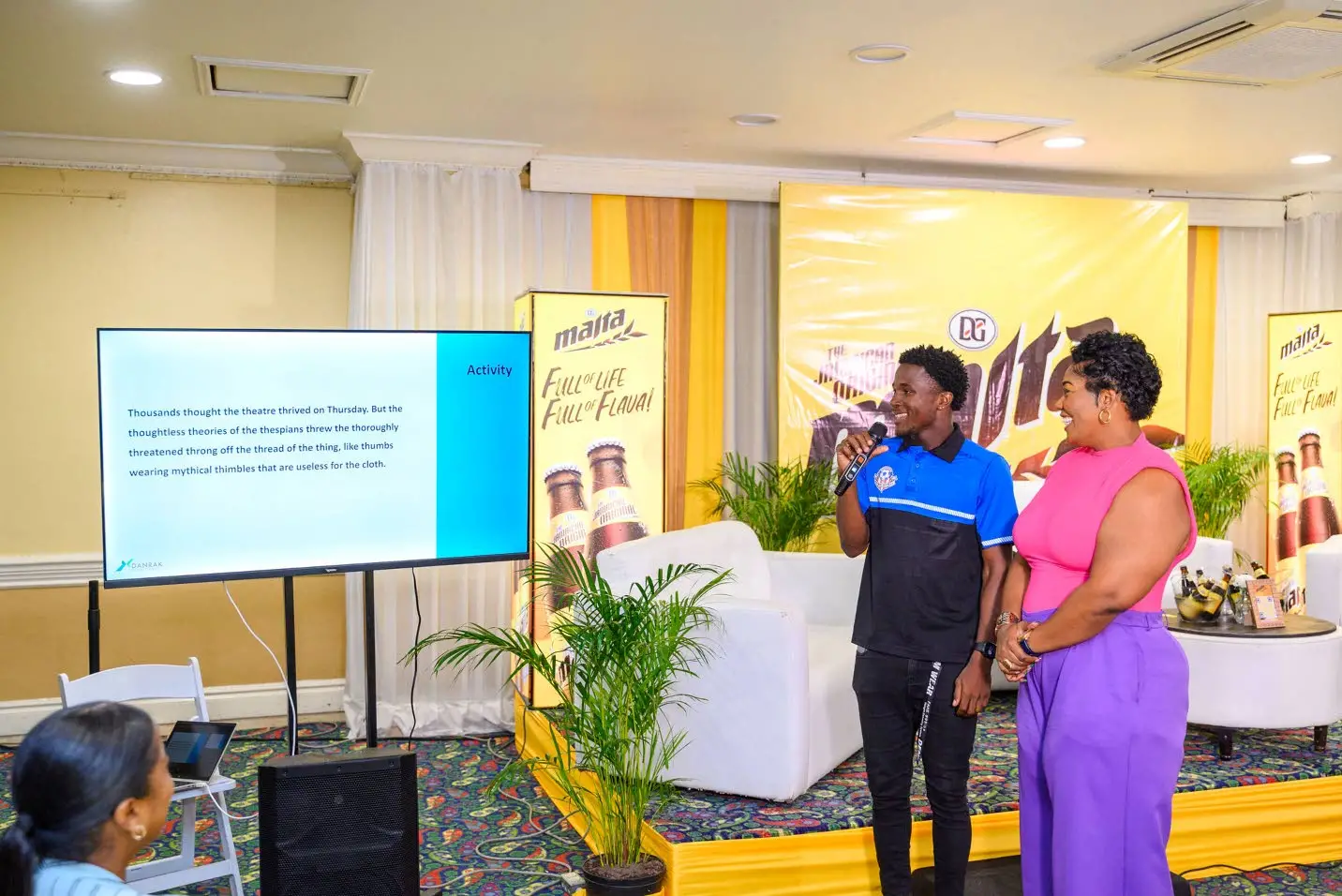
Media expert calls for increased media training and branding for young athletes
IN today’s competitive sports landscape where an athlete’s brand can be as valuable as their on-field performance, mastering media skills has become a game-changer.
Recognising this, Malta, in collaboration with Professional Football Jamaica Limited (PFJL), launched the Malta Holistic Workshop in August, an initiative aimed at equipping local footballers with the communication tools to excel beyond their technical abilities.
Media communication consultant Stacy-Ann Smith, with nearly 25 years of industry expertise, underscores that in this era of viral moments and instant exposure, effective media training and branding are crucial for athletes looking to maximise their career potential.
“Any youngster serious about pursuing a path to success should be keen to show up well — on and off the field. Being able to handle media interviews is just as important as good sportsmanship. In an ever-shrinking world where interviews and videos can go viral at the speed of light, a well-done interview can position an athlete for huge opportunities — be they scholarships, contracts, or endorsements,” Smith asserts.
Smith has seen first-hand how effective media communication can elevate an athlete’s career. She points to numerous athletes who have successfully leveraged media training to enhance their public image, leading to greater visibility and more valuable opportunities.
“There are several examples of athletes across different disciplines who have used media and effective communication to create an image from which they have benefited. Whether that image is loveable — Shelly-Ann Fraser-Pryce — or makes them out to be the guy everyone loves to hate — Noah Lyles — how an athlete presents himself or herself creates an impression that almost always increases visibility and translates to bigger and more valuable contracts.”
Beyond financial gains, effective media communication can extend an athlete’s career well into retirement. Many athletes continue to earn well after retiring from competition by transitioning into roles as commentators and analysts, which demand more than just a deep understanding of their sport. Additionally, athletes often secure lucrative endorsement deals that involve public appearances and speaking engagements, further enhancing their post-competition careers.
Smith now calls for sports organisations and educational institutions to integrate media training into their development programmes.
“Athletes and sports organisations need to prioritise media training as a foundational skill, then seek out partnerships and sponsorships from brands to support these initiatives. Brands that recognise the value of strong partnerships and endorsement deals should invest in media training to expand the pool of athletes they can leverage for marketing campaigns. Once sporting bodies broaden their perspective on the role of sports, showing athletes the financial opportunities available even after their playing days, they will start to prioritise media and public speaking training.”
Adding to the charge, Professional Football Jamaica Limited (PFJL) also advocates for press training in more youth development programmes.
Chief executive officer of Professional Football Jamaica Limited, Owen Hill, emphasised, “Media training equips our athletes with the tools they need to effectively communicate their stories and represent themselves and their clubs with professionalism. Here at PFJL we have made a concerted effort to enhance these opportunities. With the support of Malta’s partnership and initiatives like the holistic workshop we are equipping our footballers with essential media skills. This ensures they can communicate effectively, maintain a positive public image, and attract opportunities both locally and internationally. These efforts not only strengthen their brands but also elevate the profile of Jamaican football as a whole.”

























